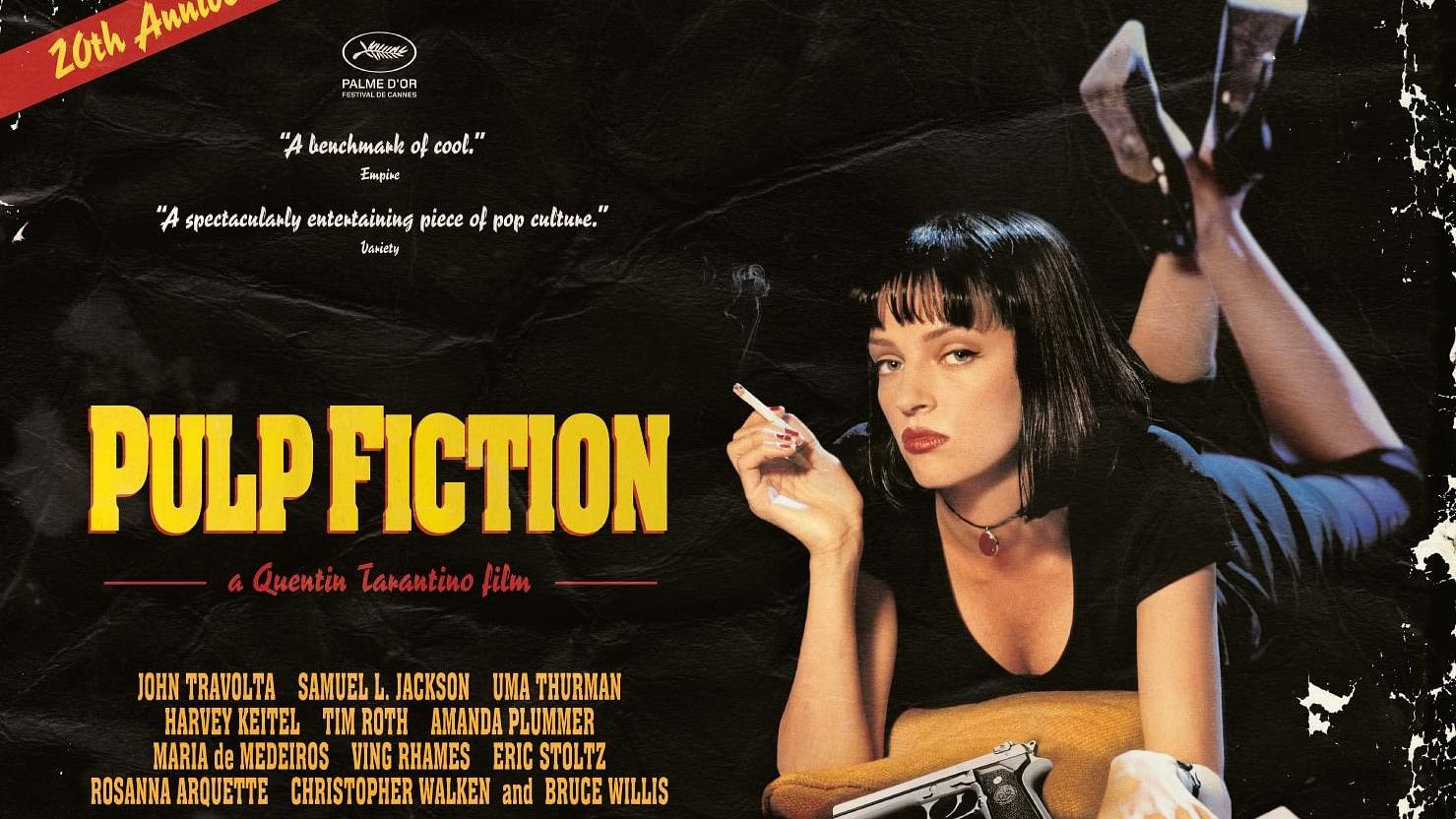
Credit: Special Arrangement
It was precisely three decades ago that Hollywood cinema resurged and reclaimed its left field with a slew of most daring and influential films. The year 1994, to be precise, is when the industry rid itself of the goofiness and the glitter dust of the 1980s and welcomed a more experimental, ‘indie’ side with the likes of Pulp Fiction, The Shawshank Redemption, The Lion King and Forrest Gump. And as these films turn a glorious 30 this year, it’s perhaps the best time to revisit all of them and a few more to understand how they shaped the zeitgeist of not just their era but also the subsequent ones, as they nudged the art of storytelling in a whole new direction.
Time of the titans
Quentin Tarantino’s ‘Pulp Fiction’ is likely to sit pretty at the top when it comes to this discussion. The former video store employee and primo film junkie had made countless heads turn and gasp only two years before with his debut ‘Reservoir Dogs’, which includes as many as 10 on-screen deaths and a total of 421 profanities. ‘Pulp Fiction’, his second feature as a director, crystallised his love for graphic violence and also tampering with linearity in narrative. Tarantino’s show of irreverence, his quirky wordplay and his masterful use of irony through music and humour in the film are still being recycled by filmmakers across the world and the effect is likely to sustain many more decades to come.
Incidentally, ‘Pulp Fiction’ won the prestigious Palme d’Or that year but lost the Best Film Oscar (winning Best Screenplay, however) to Robert Zemeckis’ ‘Forrest Gump’. The film is recalled fondly today for its heartwarming, saccharine-laden chronicle of the USA from the 1950s to the 1980s through the eyes of a title character (Tom Hanks), who might have a low IQ but has a profound outlook on life. Hanks’ performance earned him the Best Actor that year at the Academy Awards with Zemeckis bagging Best Director. But more importantly, the film has a legacy to its name that endures through its inventiveness, its iconic lines, and, of course, its warmth.
All the big names aside, 1994 holds special significance for the sheer variety it offers. Keanu Reeves-led ‘Speed’ emerged as a crackling ‘all-time’ popcorn action entertainer (so did James Cameron’s ‘True Lies’) whereas ‘The Lion King’, tugging at our heartstrings, proved that animation exudes unique charm. Frank Darabont’s ‘The Shawshank Redemption’, despite being an underperformer at the box office during its theatrical run, has grown in tremendous stature over the years through home media and streaming platforms. Its first viewing is regarded as a bona fide rite-of-passage moment by many film buffs across the world.
The age of romance
What’s truly fascinating though is that it wasn’t Hollywood alone that thrived in 1994. The same year witnessed one of the modern masters of cinema, Wong Kar Wai, in play as he mesmerised the world with his visually enchanting, one-of-a-kind romance-drama ‘Chungking Express’. The Hong Kong film is regarded as one of the greatest romances of our time. Only a couple of months prior to its release, cineastes had welcomed another landmark rom-com in Mike Newell’s ‘Four Weddings and
a Funeral’.
Written by Richard Curtis and starring a most affable lead pair of Hugh Grant and Andie McDowell, ‘Four Weddings and a Funeral’ captures romance, humour and poignancy among a set of friends with such care and affection that it endears viewers the same way 30 years later. Taiwanese auteur Ang Lee joined this wave with his own deliciously crafted feature, ‘Eat Drink Man Woman’, which highlights tradition and
familial dynamics through
sumptuous food.
The year of new beginnings
But why all the fuss over Oscars when they continue to ignore comedic virtuosos? A certain actor named Jim Carrey announced himself in 1994 with three back-to-back hits in ‘The Mask’, ‘Ace Ventura: The Pet Detective’ and ‘Dumb and Dumber’ (along with Jeff Daniels) and created his own sacrosanct niche. Carrey’s physical comedy, punctuated by his exaggerated facial expressions, has been lauded as a thing of marvel by both critics and audiences. In the coming years, he would prove himself as a talented dramatic actor as well.
The same year saw an array of new filmmaking talents, from both the USA and around the world, come into view. The very distinct voice of Danny Boyle took its first roots in 1994 with ‘Shallow Grave’, an exquisite crime drama involving three flatmates, a suitcase full of money and a murder. American actor Ben Stiller, who would go on to make many cult classics like ‘Zoolander’ and ‘Tropic Thunder’, made his directorial debut with the intimate coming-of-age film ‘Reality Bites’ while Boaz Yakin surprised everyone with his wonderful retelling of Akira Kurosawa’s ‘Yojimbo’ by choosing present-day New York, its racial and political tensions as the backdrop for his debut ‘Fresh’. Not to forget Kevin Smith’s idiosyncratic first feature ‘Clerks’, which has a huge fan-following today.
The list, of course, is endless when it comes to discussing the culturally significant films that came out in 1994. Documentary filmmaking in the USA produced some of the finest gems of all time — Terry Zwigoff’s ‘Crumb’, on the life of cartoonist Robert Crumb, and Steve James’s sports film ‘Hoop Dreams’, to name a few — whereas French filmmaker Luc Besson began his English-language journey around the same time
with ‘Léon: The Professional’.